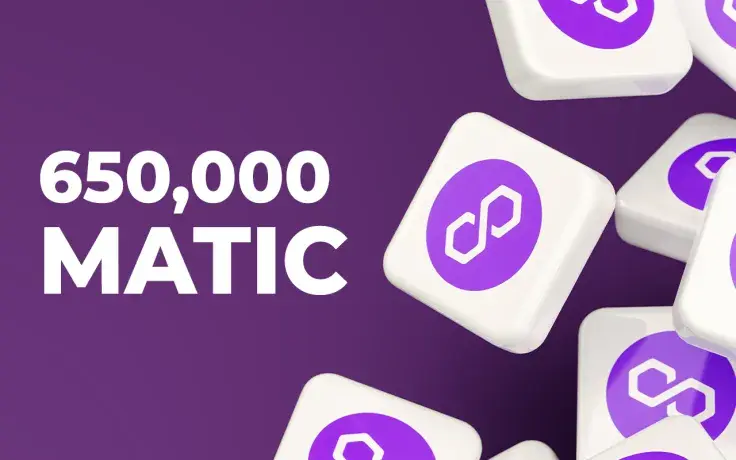
Disclaimer: The opinions expressed by our writers are their own and do not represent the views of U.Today. The financial and market information provided on U.Today is intended for informational purposes only. U.Today is not liable for any financial losses incurred while trading cryptocurrencies. Conduct your own research by contacting financial experts before making any investment decisions. We believe that all content is accurate as of the date of publication, but certain offers mentioned may no longer be available.
As shared by Polygon ecosystem updates, more than 650,000 MATIC have been burned since the launch of the EIP-1559 upgrade on the Polygon mainnet in January. As seen on the Polygonburn website, a total of 658,345.05 MATIC have been burned so far.
In total, more than 650,000 MATIC has been burned?
— Polygon Ecosystem Updates ? (@0xPolygonNews) April 25, 2022
Inching close to $1,000,000 USD worth of $MATIC burnt. https://t.co/wFbFZAe55w?from=article-links
The much-anticipated EIP-1559 upgrade launched in January allows Polygon's native token MATIC to be burned in a three-step affair, which is first initiated on Polygon and then completed on Ethereum. This is similar to a withdrawal transaction on Polygon, but instead of the tokens being received by a user, they are burned and removed from the total supply.
Each time a user pays for a transaction, the base fee gets locked on the burn contract on Polygon and the priority fee gets paid to the validator. Once MATIC gets accumulated on the burn contract, users can initiate the burn process from Polygon.
Polygon MATIC has a fixed supply of 10 billion, thus an annualized burn would represent 0.27% of the total MATIC supply, according to analysis.
In the past week, financial service provider Stripe announced that its merchants would be allowed to make initial payouts using USDC Stablecoins native to Polygon's network.
Polygon also unveiled Supernets, a scalable blockchain infrastructure that aims to ignite mass adoption of Polygon and Web3. Polygon says its goal is to bring mass adoption to Web3 and thus sees the concept of Supernets as a major step toward achieving this goal and thus is committing $100 million to its development and adoption. The funds will be used for liquidity mining, development and research contracts and also grants.
In February, Polygon raised about $450 million through a private sale of its native MATIC token in a funding round led by Sequoia Capital India, with participation from SoftBank Vision Fund 2, Galaxy Digital, Galaxy Interactive, Tiger Global, Republic Capital and other investors.

 Dan Burgin
Dan Burgin Vladislav Sopov
Vladislav Sopov